executive summary ----------------- this paper is a thought piece that accepts the thinking of nobel laureate amartya sen on the subject
Executive Summary
-----------------
This paper is a thought piece that accepts the thinking of Nobel
laureate Amartya Sen on the subject of development, and asks what that
new conception of development means for the subject of trade and
sustainable development. That is, if we conceive of development as Sen
does, how can this conception help us better define sustainable
development? And what role is there for the trade regime and trade
policy in the service of sustainable development so defined? (The
paper starts from the basic premise that sustainable development is
the appropriate goal of trade and investment policies) Further, what
would this new conception mean to those non-governmental organizations
(NGOs) who seek to harness international trade and investment in the
service of sustainable development?
Sen defines development as those freedoms that allow individuals to
pursue that which they have cause to value. So education and good
health are forms of development, since they free individuals to be
able to pursue their life goals, whatever they may be. Other types of
freedom include democracy and free speech, the opportunity to buy and
sell what one wishes on fair terms, openness and honesty in government
and business dealings, law and order, and a social safety net. Sen
(1999:18) argues that “Greater freedom enhances the ability of people
to help themselves and also to influence the world.” The process of
achieving those freedoms is his conception of development.
How can this conception help us define sustainable development? The
standard definition of sustainable development comes from the
Brundtland Commission: “development that meets the needs of the
present, without compromising the ability of future generations to
meet their own needs.”1 But Brundtland never explicitly defines
development itself – only saying that whatever development is, it
should be sustainable.
This paper combines the thinking of Sen and the useful framework
offered by Brundtland. We first add an important type of freedom to
those elaborated by Sen, building on the work of Duraiappah (2001,
2004), who argues that ecological security is fundamental to peoples’
goals. Its absence is no less limiting than is poor health, for
example, and its presence no less a goal in its own right. For the
purposes of this paper, sustainable development is Sen’s conception of
development (adding the concept of ecological security as argued by
Duraiappah), but achieved in such a way that future generations’
ability to achieve development is not compromised. Such a definition
will still need to be elaborated in specific contexts to have any
solid meaning, of course. The goal of this paper is to do so in the
specific context of trade and trade liberalization,2 asking how they
might contribute to the achievement of sustainable development.
We start with a thorough enunciation of the elements of freedom that
might be most importantly affected by trade and trade liberalization,
as abstracted and adapted from Sen’s Development as Freedom (1999).
The result, presented below, is not a definitive listing; development
priorities for any given community or individual would need to be
defined through a participatory process of inquiry.
1.
Education
*
Quality primary education, at a minimum (literacy, numeracy)
*
Training in democracy, social rights and obligations
*
Training on nutrition, fitness
2.
Health
*
Quality primary care, at a minimum
*
Adequate food, potable water
3.
Governance
*
Participative democratic process
*
Honest, efficient bureaucracy
*
Transparency, accountability of government operations
4.
Legal protections
*
Independent and fair judiciary
*
Rights of expression, freedom of media
*
Rights of non-discrimination
*
Property rights
*
Competition law
*
Labour rights
5.
Market opportunities
*
Lack of tariff and non-tariff barriers to movement of goods and
services
*
Lack of barriers to entry of firms
*
Access to credit
*
Right to organize
*
Adequate wage levels
6.
Public capital
*
Social safety net
*
Programs promoting opportunities for disadvantaged
*
Effective policing (incl. regulatory enforcement), national
defence
*
Transportation infrastructure
*
Communications infrastructure
*
Energy infrastructure
*
Water supply & treatment infrastructure
7.
Social capital
*
Stability of family relations, supportive social structures
*
Basic trust
*
Tolerance of diversity
8.
Ecological Capital
*
Stable climate, (normal rainfall patterns, storm activity)
*
Adequate watershed function (slow filtration, water retention)
*
Adequate stocks of natural resources
For each of these types of freedom there are a number of “impact
pathways” that can be identified, by which each might be linked to
trade and trade liberalization. For example, liberalization of
services may provide better access to clean water, health care,
communications and transportation. Or, depending on how it is
conducted, it may raise prices and unduly limit the government’s
capacity to regulate in the public interest.
Each of the potential linkages is discussed in some detail in the body
of the paper. An overriding theme that emerges is that trade and trade
liberalization are neither inherently good nor bad, but that strong
domestic institutions and proper supporting policies are instrumental
in changing the quality of any impacts. Trade liberalization absent a
strong environmental management regime, for example, courts
environmental degradation that may result in a backward step for
sustainable development.
The role of income as a route to pursuing other freedoms (in Sen’s
terminology, income is an “instrumental” freedom, helping to achieve
other “constitutive” freedoms) deserves special treatment. One of the
key arguments for trade liberalization is that it will increase
incomes, and it is important to ask how that might affect sustainable
development.
The literature surveyed shows that trade and trade liberalization may
indeed lead to growth, and that growth will tend to increase incomes
across the board. It will not, however, significantly change the
incidence of income inequality within a country. But by increasing all
incomes it will reduce the absolute numbers of poor. That said, in the
short- to medium-term, the poor may disproportionately suffer the
pains of transition associated with liberalization, particularly in
the absence of adjustment programs or social safety nets.
Another important conclusion is that while there may be a relationship
between openness to trade in goods and economic growth (and thereby to
increased personal incomes) the link is uncertain, or at least much
weaker, in the absence of appropriate supporting policies and
institutions. These include policies to achieve macroeconomic
stability, honest bureaucracy, rule of law, widespread health and
education, and others of the freedoms we listed above. This underlines
the need to pursue sustainable development as a coherent effort,
rather than relying on partial approaches such as trade liberalization
alone.
In the case of openness to investment, on the other hand, it seems
clear that there is no demonstrated link between openness to
investment and growth. Of the various types of investment foreign
direct investment (FDI) stands out as most likely to be significant,
and there is some evidence that the combination of investment rules
and free trade agreements may bring more investment. However, even
increased FDI will not lead to increased growth absent the necessary
domestic institutions. And inappropriate rules may lead to reduced
ability to regulate in the public interest.
What lessons emerge from the exercise of relating trade and trade
liberalization to our newly-defined sustainable development? First and
foremost, the effort demonstrates the shocking poverty of our current
thinking on trade and sustainable development, which generally assumes
that growth in trade equates to development, and demands merely that
it respect environmental sustainability. In the first place, it is
uncertain that trade and trade liberalization actually result in
increased income, especially for the poor who will feel the transition
effects. But more important, Sen argues convincingly that development
has many more dimensions than increased income. If we care about
sustainable development, then we must examine trade and trade policies
through a lens that looks at their impacts on a challenging range of
freedoms, from ecological security to democracy to education to social
cohesion. Even the most progressive of civil society actors in this
area fall far short in this respect, choosing the conceptually easier
path of trusting that growth in trade and income somehow translates
into real development.
Second, the analysis identifies a clear (if challenging) domestic
agenda for actions to help ensure that trade and trade liberalization
lead to sustainable development. It emphasized again and again the
importance of supportive domestic institutions and complementary
domestic policies to ensuring this result. The types of institutions
discussed include:
*
Strong regimes for environmental management;
*
Institutions for accountability, transparency and public input in
decision-making;
*
Independent regulatory bodies to oversee infrastructure services;
*
A competent, transparent, non-corrupt bureaucracy;
*
An independent judiciary with functional appeals mechanisms.
As well as these types of institutions, there are a number of
complementary policies that countries—developing countries in
particular—should by rights undertake should they wish to fully
exploit the potential gains offered by trade reform:
*
Investment in health and education, with emphasis on
accessibility.
*
Investment in infrastructure, particularly in the areas of water,
transportation, communications and energy.
*
Commitment to macroeconomic stability, including stable exchange
rates, low inflation, manageable debt.
*
Pro-poor elements to various policies (banking sector, energy
sector, transportation, education, etc.) to ensure the poor will
benefit.
Obviously these goals would challenge most OECD countries, much less
the developing countries for which they are intended. A critical first
need is for the country-level ability to assess domestic needs. A
secondary need is for assistance on capacity building, coming
bilaterally, regionally, or through intergovernmental organizations,
focused on helping put the needed policies and institutions into
place.
The third lesson of the analysis is the need for action at the
international level, and specifically in the context of the trade
negotiations (we focus on the WTO, but the lessons are broadly
applicable). The key problem is this: the evidence shows that trade
liberalization may only achieve sustainable development if the
necessary complementary factors are in place domestically, and may
even impede sustainable development in their absence. But in the
context of WTO negotiations, the only piece of the puzzle on offer is
trade liberalization; there is no vehicle for assessing or improving
the state of member country institutions. How, then, is the WTO to
achieve its mandate of fostering sustainable development?
The answer is that the WTO must change the way it engages countries in
the system—particularly developing countries that will be more likely
to lack the institutional prerequisites and the means for achieving
them unilaterally. The principle that should guide the necessary
reform is of differentiated need. The current system of special and
differential treatment is in need of comprehensive overhaul to help
tailor the rights and obligations adopted to the ability of developing
countries to benefit. This will necessarily involve a more meaningful
definition of developing countries in the system, will involve
collaboration on a broader and more meaningful scale with outside
institutions, and will involve abandoning the principle of reciprocity
for something more functional in the achievement of what should be the
system’s main goal: sustainable development.
1 WCED (1987): 42. The full definition, seldom quoted, continues: “It
contains within it two key concepts: the concept of “needs,” in
particular the essential needs of the world’s poor, to which
overriding priority should be given; and the idea of limitations
imposed by the state of technology and social organization on the
environment's ability to meet present and future needs.”
2 Throughout the paper, trade and trade liberalization are used as
shorthand to mean all the issue areas normally treated in trade
negotiations. These, of course, extend far beyond trade in goods to
trade in services and to areas of deeper integration such as
intellectual property rights, investment, competition policy,
regulatory policies and so on.
v
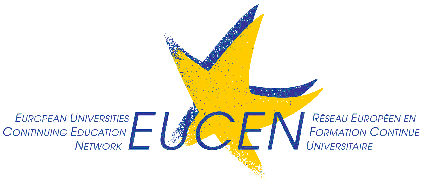 EUROPEAN UNIVERSITY CONTINUING EDUCATION UNIVERSITÄRE WEITERBILDUNG IN EUROPA THE
EUROPEAN UNIVERSITY CONTINUING EDUCATION UNIVERSITÄRE WEITERBILDUNG IN EUROPA THE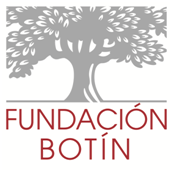 VI EDICIÓN TALENTO SOLIDARIO PARA PROFESIONALES EN DESEMPLEO
VI EDICIÓN TALENTO SOLIDARIO PARA PROFESIONALES EN DESEMPLEO  MORGAN STATE UNIVERSITY JOB SPECIFICATON NURSE RESEARCH I
MORGAN STATE UNIVERSITY JOB SPECIFICATON NURSE RESEARCH I 41 MULTIBLOCK REGRESSION BASED ON COMBINATIONS OF ORTHOGONALISATION PLSREGRESSION
41 MULTIBLOCK REGRESSION BASED ON COMBINATIONS OF ORTHOGONALISATION PLSREGRESSION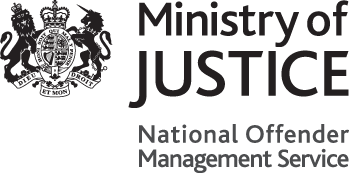 REPORTING OF PACKAGING MATERIAL USAGE – LEGAL COMPLIANCE THIS
REPORTING OF PACKAGING MATERIAL USAGE – LEGAL COMPLIANCE THIS PREKVALIFISERING FOR ANSKAFFELSE AV RAMMEAVTALE MED LEVERANDØR AV DIGITALT
PREKVALIFISERING FOR ANSKAFFELSE AV RAMMEAVTALE MED LEVERANDØR AV DIGITALT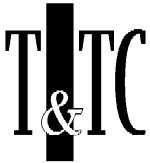 REPUBLIC OF LATVIA CABINET REGULATION NO 183 ADOPTED 15
REPUBLIC OF LATVIA CABINET REGULATION NO 183 ADOPTED 15 TIZIANO VESCOVI 123021 170136 PARTE TERZA LA FUNZIONE DI
TIZIANO VESCOVI 123021 170136 PARTE TERZA LA FUNZIONE DI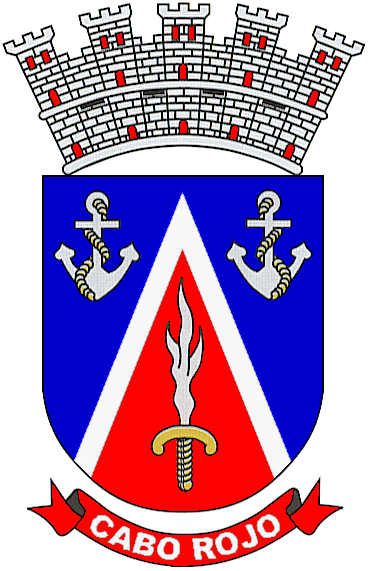 CARTA DE REFERENCIAS PERSONALES YO MAYOR DE EDAD
CARTA DE REFERENCIAS PERSONALES YO MAYOR DE EDAD SISTEMA DE RECUPERACIÓN GEOGRAFÍA E HISTORIA – DPTO CIENCIAS
SISTEMA DE RECUPERACIÓN GEOGRAFÍA E HISTORIA – DPTO CIENCIAS IMPLEMENTATION DRIVERS REFERENCE SHEET THE IMPLEMENTATION RESEARCH IDENTIFIES TWO
IMPLEMENTATION DRIVERS REFERENCE SHEET THE IMPLEMENTATION RESEARCH IDENTIFIES TWO CHRISTMAS THANK YOUS 31 THANK YOU LETTERS DEAR AUNTIE
CHRISTMAS THANK YOUS 31 THANK YOU LETTERS DEAR AUNTIE